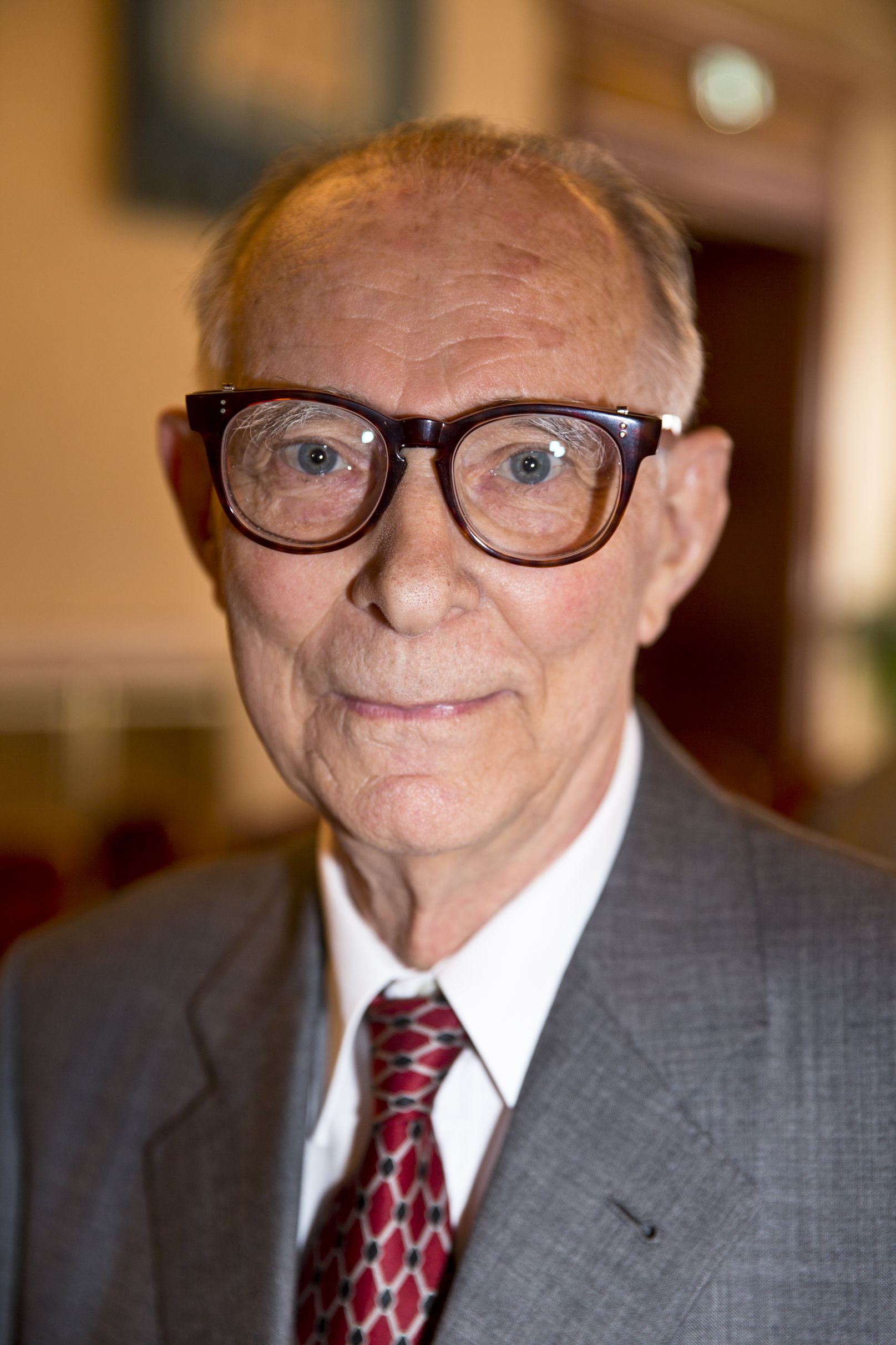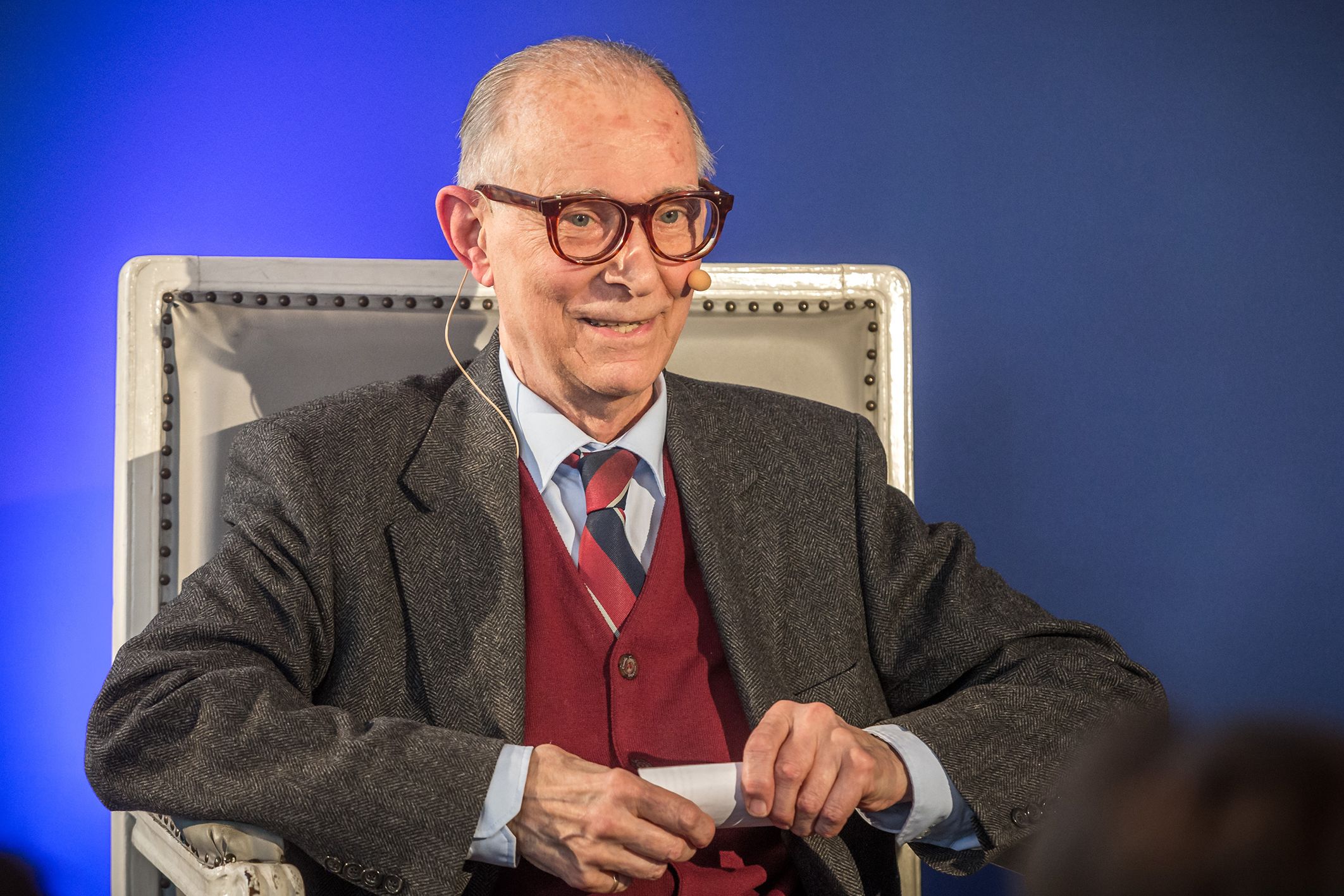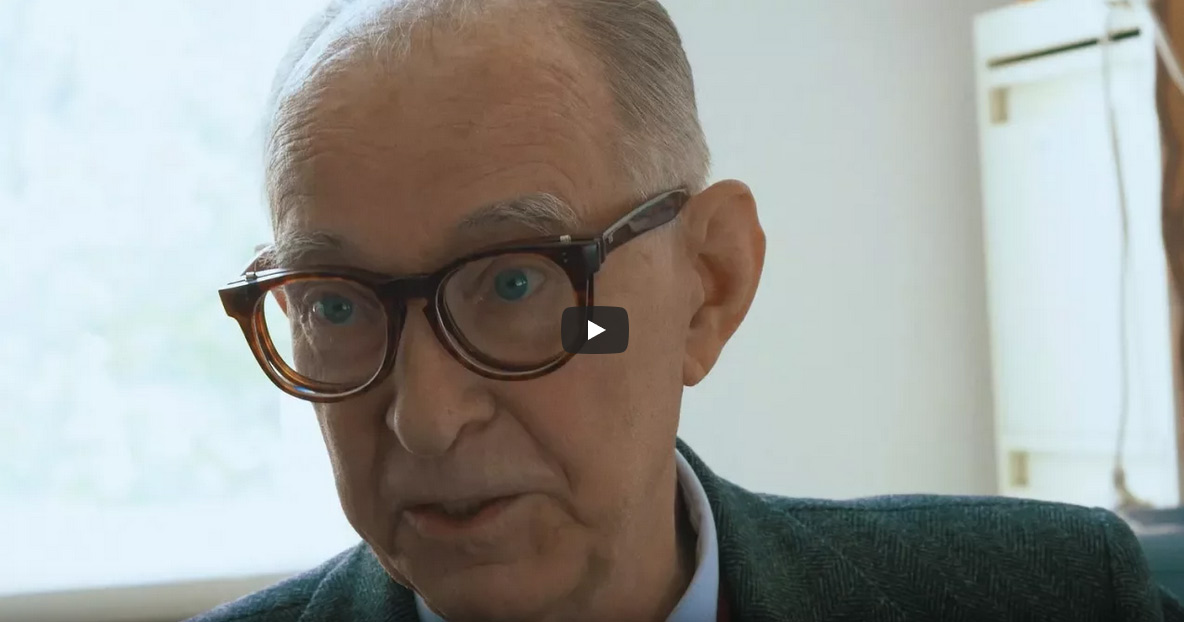
(Vienna, 27 May 2020) Oleh Hornykiewicz was born 94 years ago in Sykhiv near Lviv in East Galicia, which then belonged to Poland but is now part of Ukraine. After attending the Sperlgymnasium in Vienna, he studied medicine at the University of Vienna, graduating as a doctor of general medicine in 1951. He immediately took an unpaid post as a research assistant at the University's Pharmacology Institute, which was then directed by Professor Franz von Brücke, before moving to the Pharmacology Institute in Oxford on a British Council scholarship in 1956.
It was in the laboratory of Hermann Blaschko, an Anglo-German biochemist, that he began to research catecholamines, a group of chemicals that includes dopamine, noradrenaline and adrenaline, among others.
Following his return in 1958, Hornykiewicz then took up a post as a university assistant in the Pharmacology Institute of the University of Vienna, where he continued the catecholamine research inspired by his time in Oxford.
Hornykiewicz pursued the hypothesis of dopamine as a distinct neurotransmitter, first of all producing papers on the blood pressure-lowering effect of dopamine in guinea pigs, mediated by dopamine receptors. In 1960, he published his ground-breaking paper on the loss of dopamine in the basal ganglia of the brain of Parkinson's patients, which he wrote in conjunction with Herbert Ehringer. From the loss of dopamine in the corpus striatum, Hornykiewicz made the revolutionary inference that it would be possible to replace dopamine with its precursor molecule, L-DOPA. Just one year later, he and Walter Birkmayer successfully demonstrated the therapeutic effect of L-DOPA in Parkinson's patients, thereby laying the foundation for dopamine replacement therapy in Parkinson's disease. In the years that followed, Hornykiewicz continued to work on the underlying pathophysiological principles of Parkinson's disease and L-DOPA.

Hornykiewicz gained his postdoctoral qualification in pharmacology and toxicology in Vienna in 1964 but very soon afterwards, in 1967, took a position as Professor of Psychopharmacology at the Department of Pharmacology and Psychiatry of the University of Toronto and the associated post as Head of the Department of Psychopharmacology at Clarke Institute of Psychiatry, Toronto, Canada, and, in 1973, was also appointed as a professor at the Department of Psychiatry, University of Toronto. During this period, Hornykiewicz' research work was focused on investigating the neurochemical and neuropathological changes in the brains of patients with many different neurological and psychiatric disorders. In 1976, Hornykiewicz was appointed to the University of Vienna and took over as head of the newly founded Institute of Biochemical Pharmacology, while simultaneously being appointed Head of the newly established Human Brain Laboratory at the Clarke Institute in Toronto, Canada. While the focus of his work at the Viennese institute was on animal experiments, his working group at the Clarke Institute was more concerned with clinical neuropathological studies. Hornykiewicz retired from the Clarke Institute in Toronto in 1992 and from the University of Vienna in 1995. However, he continued to serve as interim head of the Vienna institute up until 1999, thus playing a key role in setting up the Viennese university's Center for Brain Research at the present-day Medical University of Vienna. The Institute of Biochemical Pharmacology was also incorporated into this new center.Over his career,
Hornykiewicz received many prizes and awards. For example, in addition to the greatest honours of the Austrian Republic and the City of Vienna, he and Arvid Carlsson were awarded the Wolf Prize in 1979 for the new approach to the control of Parkinson's disease using L-DOPA. This prize, which is awarded by the Wolf Foundation in Israel counts as one of the most prestigious prizes in natural sciences after the Nobel prize. In fact, like many other Wolf Prize-winners, Arvid Carlsson went on to win the Nobel Prize in 2000 (together with Paul Greengard and Eric Kandel) for discoveries relating to signal transmission in the nervous system. The fact that Hornykiewicz lost out on the prize, even though it was he who had made the crucial link between the discovery of the neurotransmitter dopamine in Parkinson's disease and its treatment, prompted an open letter to the Nobel Prize Committee in 2001 signed by 230 scientists, registering their regret that Hornykiewicz had been overlooked in this regard.
His commitment to the Center for Brain Research was lifelong and he continued to work in his office nearly every day until well into his 90s, joking with the staff of the groups housed there and giving them the benefit of his sharp wit. With the passing of Oleh Hornykiewicz, the Medical University of Vienna is losing an outstanding neuroscientist. There are few of his number who better deserve the title of "discoverer", since the therapy he developed has helped humanity in a significant and lasting way.
Harald Sitte, Institute of Pharmacology, and Christian Pifl, Center for Brain Research of MedUni Vienna

After activation, data will be sent to YouTube. Further information here: Data protection
"Lebenswege" - Portrait of Oleh Hornykiewicz (2017, in German)